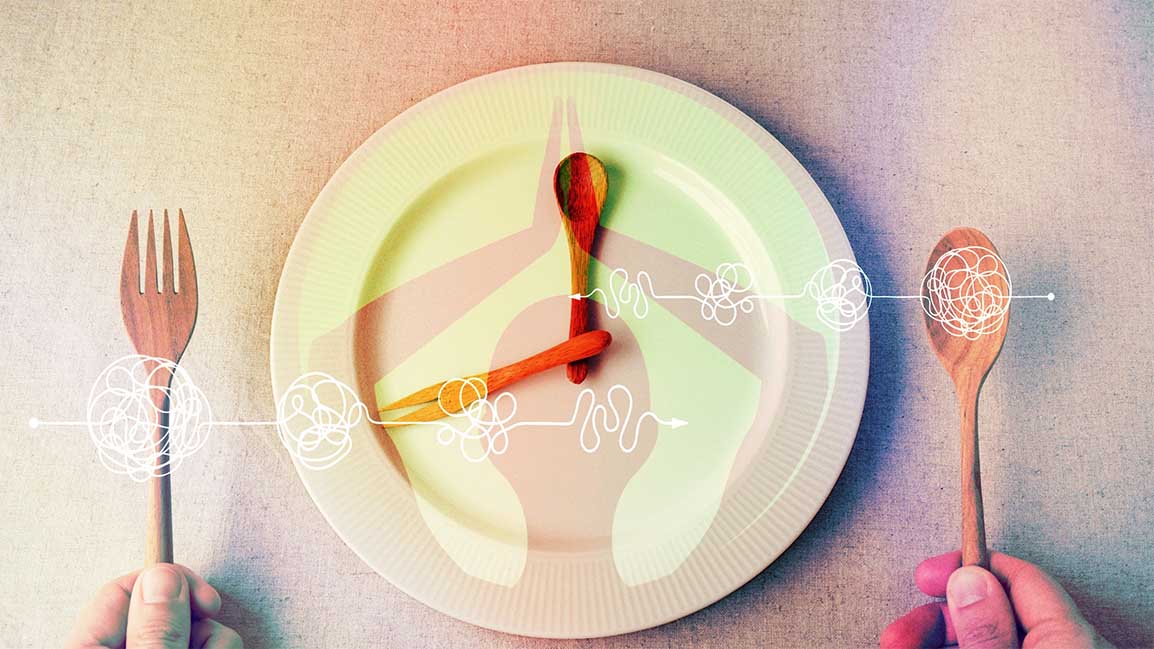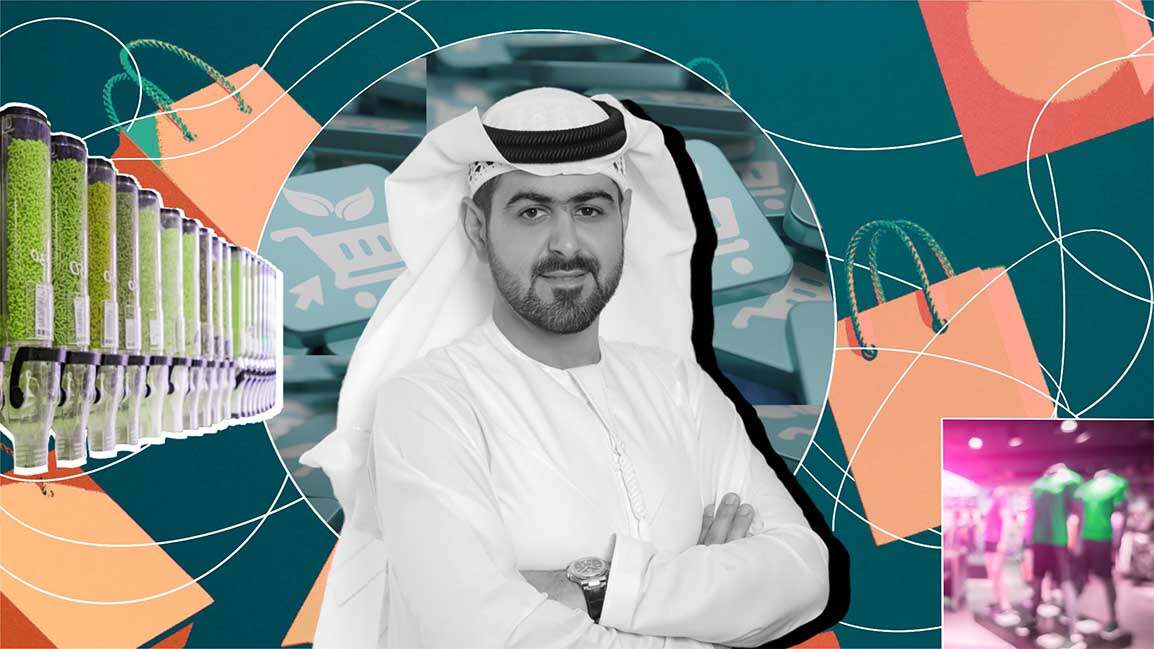- | 9:00 am
Is fasting a free health fix? This expert says it helps activate our inner intelligence
Fasting activates good genes with protective mechanisms in our body, and regulates functions like longevity, inflammation, and fat metabolism

Homeostasis. Do you know what that means? It is a process wherein a living organism, or an ecological system, maintains inner stability while exposed to changing external conditions.
Think of the human body as an ecological system. It regulates its internal environment to keep you fit despite the uncertain conditions you are exposed to.
So, what works continuously on the inside that protects us? Let’s think of these as inner physicians, diagnosing us constantly for well-maintained health. Among several of these inbuilt physicians is fasting.
If done the right way, fasting is therapeutic, and there is extensive research to back this up. The more I research and dig deeper into its mechanism, the more I am in awe of our bodies’ amazing wisdom.
When you fracture a bone, what heals the bone? Plaster? No. Doctor? No. It is the inner intelligence that heals a fracture. Our body has the potential to heal itself, provided we give it the right set of conditions and environment in terms of nutrition, movement, sleep, emotional health, and a conducive environment.
Fasting is a tool that helps activate and tap into our inner intelligence. The science behind this is simple. When we fast, we give our digestive system a break. This break helps conserve energy that would have been spent in breaking down what we are consuming. This conserved energy is channeled into repair, recovery, growth, rejuvenation, and healing, which are necessary for almost every disease known to humankind today.
Most of us eat more than our body needs through constant snacking and nibbling. Constant eating and too much eating can send our digestive system into overdrive. Think about it — what is the first thing that happens when we fall sick? Our appetite reduces. What does this tell you? It is our body’s intelligence to reduce our appetite so we can save the energy that goes into digestion for healing and repair.
Fasting is also a stimulus for activating certain good genes with protective mechanisms in our body, like the SIRT1 gene, which regulates functions like longevity, inflammation, fat and carbohydrate metabolism, and more.
The beauty of fasting is that its effects are not just limited to physical health but also transcend at an emotional, mental and spiritual level. Fasting – in some form, exists in all religions. The Muslims have an entire month of Ramadan dedicated to fasting to cleanse and purify their mind, body, and spirit.
Here’s how fasting can benefit us:
PHYSICAL BENEFITS OF FASTING
- Providing higher energy levels to the body, fasting improves immunity, and helps with better blood sugar control if done correctly. It aids in better digestive health, and reduces bloating. People who have observed fasting have reported waking up with absolutely no bloating, hence providing better sleep patterns. It also helps improve gut microbiota (good and bad bacteria ratio).
- Fasting reduces arthritic pain and swelling by reducing inflammation. It helps to find control over their cravings for sugary and junk food. With a mindful appetite, breaking the weight-loss plateau is also possible. It is also known to be anti-aging, helps in detoxifying the body while improving hormonal imbalances, and aids better-looking skin and hair.
- Fasting also promotes stem cell regeneration, autophagy, and lean muscle growth, while generally extending one’s lifespan and vitality. It’s also a stimulus for human growth hormone.
There are fasting pods found in Mexico. They are called “fast incubators,” wherein people are surrounded by nature and aren’t exposed to any smell of food or noise. One can fast for any period – depending upon their choice – ranging from 10 to 30 days. People have reported remarkable improvements in the healing process of various diseases. Many have even reported improvement in their eyesight and the sense of hearing returning to them.
MENTAL BENEFITS OF FASTING
- It aids in better concentration levels
- It helps with better mental clarity, clearer thinking process, and reduces mental fog
- It also helps protect the brain against neurodegenerative conditions like Alzheimer’s and Parkinson’s
EMOTIONAL BENEFITS OF FASTING
- It provides an increased sense of gratitude
- It helps increase the sense of calm and happiness
- Fasting is known to promote the emotion of feeling good from within, positive, peaceful, happy, and overall, a better mood. It’s also known to reduce symptoms of anxiety and depression
- It helps the general sense of feeling more grounded and grateful
While fasting is a simple concept, it also becomes confusing for many because of many different claims, ways to do it, and precautions floating across the internet. Fasting doesn’t have to be difficult. It should come naturally to us.
The most natural and realistic way to fast is circadian rhythm fasting. In simple words, it means sunset to sunrise fasting, where one eats their last meal of the day early (close to or with sunset) and breaks it after sunrise. This allows for a minimum of 12-hour fasting, and it’s one of the most effective ways to embrace fasting based on experience.
It is what one must adopt because our body isn’t designed to digest late-night meals and snacks according to the laws of nature. So, an early dinner followed by fasting for about 12 hours, with no food in between, except plain water (if required), gives a much-deserved break to our body. This is smart and intuitive fasting because it aligns fasting with the cycles of nature.
No matter how hectic your lifestyle is, circadian rhythm fasting can be followed by anyone. If one cannot fast for 12 hours, start with ten or eight. Start somewhere, and then as you proceed, the changes you start to experience in your body will motivate you to step up your game and inch closer to 12 hours or more, based on what your body tells you.
If you do not feel hungry even after 12 hours, gracefully extend your fast, you will experience true physical hunger, and then break your fast the right way. You do not have to stuff yourself with breakfast if you do not feel like it. Not feeling hungry in the morning signifies that your body is still in the detoxification phase and is processing your last meal. Honor it, and fast accordingly.
One needs to identify what works for them. For example, I like to practice a basic 12-hour circadian rhythm fast daily, followed by a long 24-hour fast on Sundays, post-lunch. That works for me.
But fasting can also be dangerous if done wrong. Fasting doesn’t have to suit everyone, so people should be careful while testing their capacity with it. Especially if you are an individual with a chronic kidney condition or are extremely weak, underweight, or under medical treatment, you must make an informed decision and avoid it.
FASTING STRATEGIES
- The ideal way to break your fast
When you break your fast, the idea is to nudge your digestive system to wake up gently. So, feasting immediately after fasting isn’t a good idea. It might overwhelm your digestive system. The best way to break a dry fast is first to have water. Take a few sips, swirl it in your mouth before swallowing and then eat either a fruit or 1-2 fresh dates. This can be followed by a simple home-cooked meal after 30-40 minutes.
If it’s intermittent fasting, one can break the fast directly with fruits or dates, followed by a simple meal after a decent gap.
- Does it have to be an overnight fast?
It’s ideal to fast while you sleep because all important detoxification, repair, and recovery processes happen in a state of deep rest. Our bodies undergo detoxification at night, and its effects are more pronounced when we fast. However, when you want to break the fast depends on you and the signals your body is trying to give. Some wake up feeling hungry, while some do not until the afternoon. Listen to your body. There is a clear difference between fasting and starvation. If you do not feel hungry, respect it, and extend your fast for a few more hours.
- Work out while fasting – safe or unsafe?
There is no blanket answer for this. For some, fasted workout could be the best thing to do, and it could be harmful to someone else. Depending on your goal, energy and hunger levels, type of workout, and health condition, one could take a call on fasted workouts. With that said, fasted workouts are great for insulin resistance, fat loss, belly fat, or breaking a weight loss plateau. Listen to your body and do it if it suits you.
- Do not diet when eating
In the building phase, ensure you eat well. Don’t diet, or you will only cripple your metabolism. Get your macros and micros (I don’t mean you start calculating them!), vitamins, and minerals. Eat well, and don’t starve. Fasting is not starvation.
- Do not fast on tea and coffee
Some people claim to be fasting but still have tea, coffee, or juices. Such an approach can harm one’s health — acidic beverages’ can damage delicate gut linings. If one wants to adopt fasting, one must do it the right way or not do it at all.
- Who shouldn’t fast?
While the benefits of fasting are powerful, it does not have to suit everyone. Below are some cases where fasting must be avoided or followed only under medical supervision.
- Extremely weak and underweight individuals
- Pregnant and lactating mothers
- Highly unstable blood sugar and blood pressure levels
- Kidney diseases (especially those on water restrictions)
- Medical treatments or medicines that need to be had during a certain time of the day
Luke Coutinho is the founder of the Luke Coutinho signature You Care Wellness Program that has consulted & treated over 20,000 patients across the globe with cancer, Alzheimer’s, diabetes, cardiovascular & rare metabolic syndromes.


































